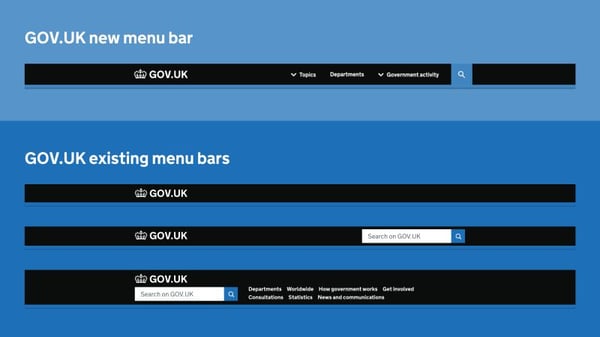Interview: GovChat founder on interoperable government
By the time the South African government declared a state of national disaster in March 2020, South Africa already had the highest reported cases of COVID-19 in the continent. As the country imposed restrictive lockdown measures, there was a need to simplify citizen and government communication.
It was in this context that Eldrid Jordaan's GovChat emerged as an essential platform, using a WhatsApp Business API to allow citizens to connect with 257 South African municipalities and provide catered support regarding fundamental services such as water, electricity and sanitation and eventually for the provision of Social Relief of Distress grants and providing COVID-19 test results.
In our discussion, Jordaan discussed the value of interoperable government services with a single user entry point for the citizen. For Jordaan, government is and should be the bestower and ultimate custodian of citizen data.
 Eldrid Jordaan is a South African entrepreneur, digital communications advisor to various African governments, and Professor of Practice at the Johannesburg Business School.
Eldrid Jordaan is a South African entrepreneur, digital communications advisor to various African governments, and Professor of Practice at the Johannesburg Business School.
During the Pandemic, Jordaan's brainchild, GovChat collaborated with the South African Department of Health to facilitate tracking COVID-19 symptoms, provide the location of testing centres and process test results from testing centres and laboratories across the country.
GovChat's success
It's often said that necessity is the mother of invention. According to research by Cable, South Africa's broadband speed sits at 36.46Mbps, almost three times slower than the UK's 93.63Mbps. It's because of these challenges with digital infrastructure that South Africans use data lite phones and are highly selective about which applications they can have on their devices.
Eldrid told us, “During the Pandemic, we knew we couldn’t force citizens to decide between WhatsApp and a government app because we would compromise our uptake. Instead, we set up a WhatsApp Business API, allowing GovChat to appear as a contact on a citizen’s phone”.
By considering the unique needs of the South African population and tapping into WhatsApp’s pre-existing market capture in South Africa, Govchat was able to cash in on national user-centric design needs and the global displacement of the siloed app economy with interoperable, integrated systems. In the end, GovChat processed over 7 million COVID-19 test results from testing centres and laboratories across South Africa.
Interoperability and data ownership
Learning from his success in South Africa, Jordaan reflected that it was having a unified pool of citizen data that enabled government to instantly understand the needs of the citizen. With government both owning and bestowing citizen data, it's up to governments to make the best use of this data and act both effectively and responsibly, Jordaan argued.
“Passports, NHS numbers and birth certificates are not created or issued by citizens, but by the government. It is in the government's interest to be responsible custodians and users of this information that they themselves have created,” he emphasized.
Jordaan highlighted two key benefits to this interoperable and integrated system of data storage. Firstly, it allows citizens to conveniently communicate with the government. A citizen that would like to access a government service should not carry the onus of having to cross-reference their identity with multiple government bodies, rather this should be the responsibility of the government.
Pointing out that citizens should have a single contract with an elected government, rather than individual contracts with fragmented operational departments, Jordaan exemplified that by having GovChat integrated into various government systems, South African citizens were able to avoid standing in queues and providing paper-based documentation to verify their eligibility for social welfare, highlighting that this shouldn't be "the citizen's responsibility or problem".
Secondly, integrated systems that have a single view of the citizen enables the government to identify inconsistencies in data that inhibit the government planning process. During Jordaan’s work with the South African government, GovChat was able to overlay geographical data extracted from where citizens were applying for local grants with population census data.
“Exposing the disparity between the real-time geographical data and census data revealed that the government did not have a grasp on the number of people that live in local districts and was therefore far behind in accommodating to citizen’s needs in terms of policy, planning and resource allocation. We want to get governments to a stage where they’re not only responsive but predictive. If a citizen is pregnant, the national treasury should know so that they can prepare for the health and education services of the mother and child,” Jordaan explained.
Data protection, social media and advice for start-ups
In Jordaan’s legal dispute with Meta, it was alleged that Govchat violated WhatsApp’s licence use, but the South Africa's Competition Commission ruled that taking off GovChat off Whatsapp would be anti-competitive.
Jordaan reflected that whilst the government creates identity documentation and therefore ought to use it responsibly, the same can not be said for social media companies, with users inputting their data into the social media platforms which is then commercialised through targeted advertising.
“I’m encouraged by the EU legislation on data protection that I believe will start holding social media companies to account. Many were surprised that Zuckerberg bought WhatsApp for $19 billion before it was revenue generating, but it goes to show the importance of gaining critical mass before building an ecosystem and entering commercialisation”. For tech start-ups looking to work for the public sector, Jordaan advises tapping into pre-existing audiences and markets, as well as moving with the wave of platform unification.
After registering Suppple PLC in the UK and listing the company for £200 million on the Luxembourg Stock Exchange, Jordaan is looking to bring his vision of an interoperable government to European governments. It remains to be seen whether they’ll bite.
Also Read
- NHS unveils redesigned homepage to meet evolving digital health needs
- Transforming citizen experience: Innovation, strategy and collaboration in public services
- Reforming planning technology: the key to unlocking growth
- Canada sets out 'Digital Ambition' with focus on smarter, secure, and citizen-centric services






